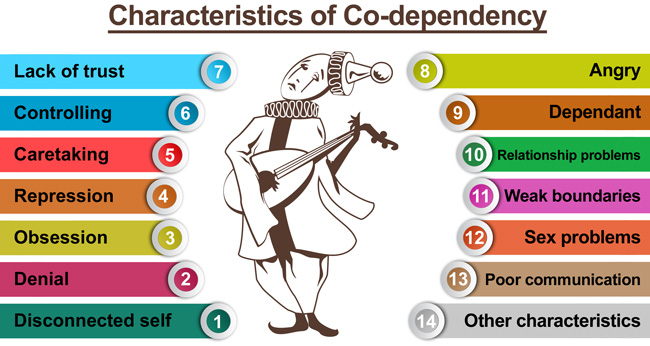We’re typically comfortable sharing our strengths, values, and ideals with our offspring. We assume that doing so will enable them to follow our guidance and propel them in the right direction. But the tendency for many parents is to openly share their positive attributes but withhold the personal history of their life’s struggles and upsets. We may say that they don’t want to burden our children with our problems – past or present. Or we simply don’t want to present ourselves in a way that is inconsistent with what we try to model. Ironically, when we share only the good with our children, we deprive them of a realistic expectation and preparation for what likely lies ahead.
When we divulge our challenges, we are actually sharing a valuable life lesson: life is difficult at times and struggle is normal. By not conveying our personal travails with our children, we actually set them up for personalizing their difficulties. When they encounter hardship and struggle – as they undoubtedly will – they may personalize their own weakness or failure, believing there’s something wrong with them. If they knew that we went or are going through these difficulties as well, we’d be providing them with anchoring reference points.
Normalizing Life’s Challenges
I have worked with many adolescents and young adults who have battled low self-esteem or anxiety. Having also assisted one or both of their parents, I came to appreciate that they too had confronted similar challenges. But they typically didn’t share this with their kids. So when the child feels down or anxious, they have no reference point. They can’t reflect that mom or dad battled with this and perhaps overcame it. Or, even if their parents didn’t get past their problem, the child may better understand the source of their own difficulty. Withholding these matters from our kids leaves them with the inevitable conclusion that there’s something wrong with them. This isolates them and exacerbates their struggle. Imagine if mom or dad shared that they too went through this and came out on the other side? It’s also beneficial to communicate even if their parents still confront these matters but are working on them and have confidence that they’ll overcome them.
When our young ones encounter anxiety, insecurity, or distress, it would actually be helpful for us to not simply be supportive, but to normalize their upset by sharing our own similar experiences. Actually, this sharing should occur as part of the normal repartee of child rearing. In other words, life is difficult and even mom or dad have had their encounter with difficulties. Life’s stressors are bad enough; we don’t need our kids thinking that it means there’s something wrong with them.
Acting Strong is Acting
I have come to appreciate that many people think that others are better off emotionally than they themselves are. They believe their difficulties are unique to them and other people are happier or better off. This is an excruciatingly damaging myth. We can help break this myth by sharing more honestly and fully. A proper preparation for life is to honestly address all that life brings forth. Acting strong is not strong; it is acting. Expressing and embracing your vulnerabilities is powerful and reveals genuine self-esteem. The paradox here is that our being vulnerable is actually strong, for it demonstrates that you have nothing to hide. Doing so, in turn, models for our children an intrinsic self-worth, as it removes a feeling of shame about their struggles.
Many times, as recently separated or divorced parents begin to date, they wonder whether to share that with their children. It is, of course, essential that we be sensitive to the trauma of divorce. Focusing on a healthy transition for the children should be paramount. But the time comes when you may choose to move forward with your life. Why hide this natural process from your children? I have often heard divorced parents state, “I wouldn’t expose my kids to my dating.” Making a life transition and eventually meeting other people for social circumstances is not akin to the West Nile Virus. More to the point, it might be helpful to children to understand that dating is a process and that your next partner doesn’t ordinarily just turn up magically on your doorstep. If that is what they are led to believe, they will likely internalize some negative self-esteem when they don’t fall in love with the first people that they date. We need to set realistic expectations for our offspring.
Sharing the fuller richness of our lives with our children rather than simply modeling the “proper” parent is of inestimable value to them. I had the great fortune of having a father who communicated with me the full measure of his life. Not just his successes and rewards, but his hopes, his struggles, his fears, and his disappointments. This degree of mentoring provided me with a resilience that I’m most thankful to have. I have in turn passed that on to my sons. We can provide our kids with this healthy foundation from which to engage life.
There is naturally a fine balance between appropriate sharing and not turning your children into your emotional partners. We never want to unduly burden them, but we do want to prepare them for life. Fine tuning that balance is the goal. The greatest gift we can give our children is to fully participate in their lives by opening up our own to them. Their resilience is in large part informed by sharing more of our own life with them.
Dr. Mel Schwartz
Four Best Tips on Teaching Resilience to Your Child
Is being resilient good for children? It is common for children to experience setbacks, unwanted challenges, failures and even difficulties at school. How are the children coping with these?
Resilience is the ability to take control of self during difficult situations, failures, challenges, and setbacks. Resilient children are those who are able to effectively handle any pressure and get things done, despite obstacles. If resilience is good for children, how then can we help our kids to have it as parents? Here are four best tips on teaching resilience to your child that work.
Tip # 1 – Give our Children Undivided Attention
Quality time with children is not just being with them physically. We must give them undivided attention by listening with our heart. When we give our children attention, they will feel important. They will be confident that they trust and depend on us in handling their situation. As parents, we would know if our child is upset or emotionally disturbed.
Tip #2 – Put Yourself in Your Child’s Shoes
If what you planned did not materialize and you feel really bad, what do you usually do? Often, you will tell about it to your spouse or your best buddy. And, what is the most common reaction? Normally, they will tell you that it is okay and you can try again next time. There is nothing wrong with the response. However, it is not what you want to hear. You want empathy and assurance that they will be with you until you are able to recover from your disappointment.
Your children also need these things when they are down. They don’t want lectures or advice. Letting them know that you understand them and you are willing to support them will teach them resilience.
Tip # 3 Never Judge or Criticize Your Children
Accepting your children for whom they are is the one of the best ways to make them resilient. If you truly accept your child for whom he is, you will never judge or criticize him.
Well accepted and appreciated children become more confident and strong in facing any obstacles in life. If they know that they are not criticized for the way they are, they become more appreciative of themselves and do better in life.
Tip # 4 Determine Your Child’s Strengths and Develop Them
Not all children are the same. Each child has his own strength and weaknesses. Find out the strengths of your child and develop it. For example, if your child is good at music and craft; develop it and don’t make him excel in math or science. Help your child know his strength to promote resilience in letting him know that he excel in something.
Parenting Notes :
- Your child will be able to cope better when he/she feels that they are safe and secure. No matter how stressful your day may be, take time to bond with your kids and to connect with them. Talking to them and sharing about your day with them will make them value you more. They will in turn share something that has happened to them as well. Make this a frequent activity during dinner or at bedtime.
- Teach your child to value volunteering. A valuable contribution to the community could be anything from donating clothes, water, food or medicines or offering their time to doing community work. These activities will foster self-awareness and competence; he will also learn how to value himself and others.
- Make your child feel that he/she belongs to a family and that their presence is greatly appreciated. Make them care for a family pet, care for a younger sibling or assign them chores that will fit their abilities and being responsible.
Sources:
http://psychcentral.com/lib/10-tips-for-raising-resilient-kids/
http://melschwartz.com/raising-resilient-children/
http://www.camh.ca/en/hospital/health_information/for_parents/pages/raising_resilient_children.aspx


 RSS Feed
RSS Feed
